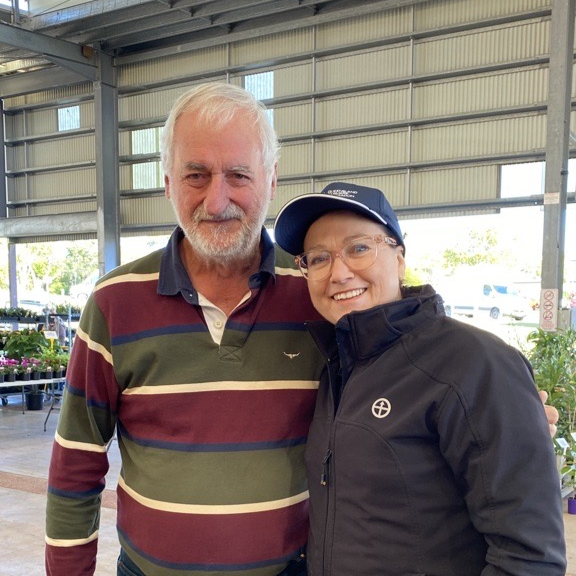
Tell us about yourself and your role at QFF
I’m Sharon McIntosh, QFF’s Water and Energy Policy Advisor. I have a background in environmental science, with a focus on agriculture and water, whilst specialising in climate change and water resources.
I’ve been at QFF for four years, where I look after everything to do with water and energy policy for Queensland agriculture.
This covers everything from water quality and dams, right through to ground water issues and water security. As part of my role, I work very closely with QFF’s peak body members to identify shared advocacy priorities in water and energy so that we can collectively develop solutions to support farmers to use water more efficiently, whilst also focusing on affordability to increase their productivity.
How does QFF develop water and energy policies?
QFF develops policy through our Water and Energy Policy Committee (WEPC), which is made up of all QFF members. Through WEPC, we identify our priority areas for water and energy policy, and then work to develop policies and solutions alongside industry and state and federal governments.

What do you like about working in agriculture?
I love being a voice to keep our food and water secure – helping to ensure that Queensland can continue to provide high quality and world-class food, fibre, and foliage while ensuring we protect water in our regions for future generations.
What are some of the main challenges and opportunities you see for agriculture regarding water?
One of agriculture’s biggest challenges I see in the coming years is being prepared for climate change. Climate change is a key threat to agricultural production, but it is also one of the few sectors that are contributing to mitigation strategies and implementing adaptation strategies. Farmers are helping to reduce the impact of severe drought and floods by building resilience through a range of activities such as changes in crop selection, changes in land management and improving water efficiency. Continual improvement in water efficiency, on-farm dam storage and the associated rising energy costs whilst helping farmers remain viable, will be key considerations that the sector will need to collectively work together to address.
In terms of opportunities, there is huge potential to look at new ways to farm, particularly with new renewable and innovative technologies coming online, and this will hopefully have positive outcomes in terms of finding different ways to distribute water on farm, therefore reducing water consumption. This will not only increase water efficiency, but also help to decrease costs in terms of energy. There is also a lot of work being done in the science world in terms of alternative crops and future proofing current high demand crops, with scientists looking into how these crops can fare under drier conditions, thus requiring less water.
Can you walk us through some of the recent water advocacy work that QFF has been involved in?
One of the standout pieces of advocacy work that QFF has recently completed is speaking on behalf of the agriculture sector at the Federal Government Inquiry into the impact of climate change on agricultural production, and the subsequent submission that outlined the opportunities, solutions, and threats we’ve identified regarding climate and agriculture.
We’ve also managed to achieve a change in water policy by working closely with our members and with government and industry to make sure this was pushed through. The change now means a lot of farming communities will have reduced costs for their on-farm water use, which will help them grow their farms.
QFF has also set up a Price Path Committee with Sunwater with this new relationship allowing QFF and our members to provide early feedback on upcoming pricing considerations.